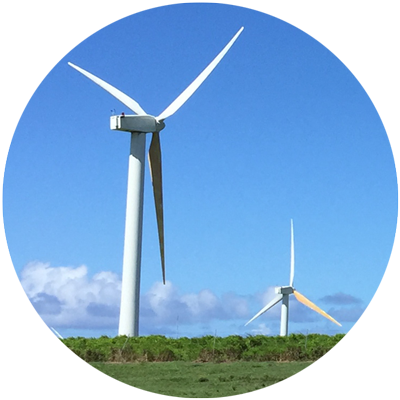Home > Climate News >
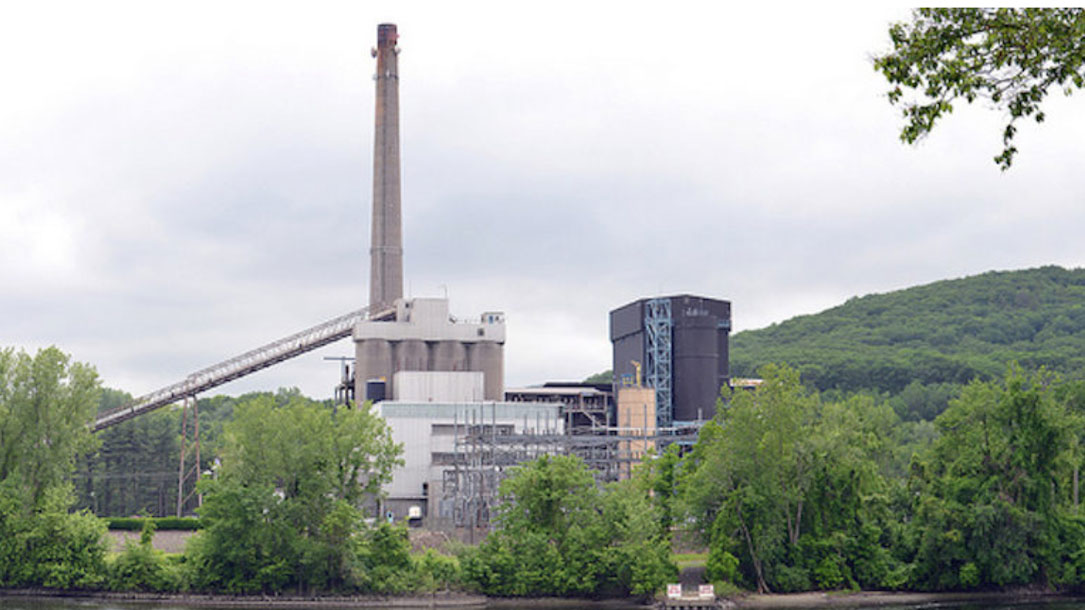
Example: Kestrel Land Trust takes action against climate change with fossil fuel divestment
Kestrel’s mission to conserve and care for forests, farms, and riverways in the Pioneer Valley protects the future health of our planet. They state that “the work we do is impacted by—and has an impact on—the crisis of climate change that is now defining our future. The overwhelming scientific consensus is that the burning of fossil fuels is warming our planet and threatening our global life support systems.
That’s why Kestrel’s Board of Trustees voted to eliminate equity holdings in companies owning fossil fuel reserves in all of the long-term endowment accounts that support their work…”
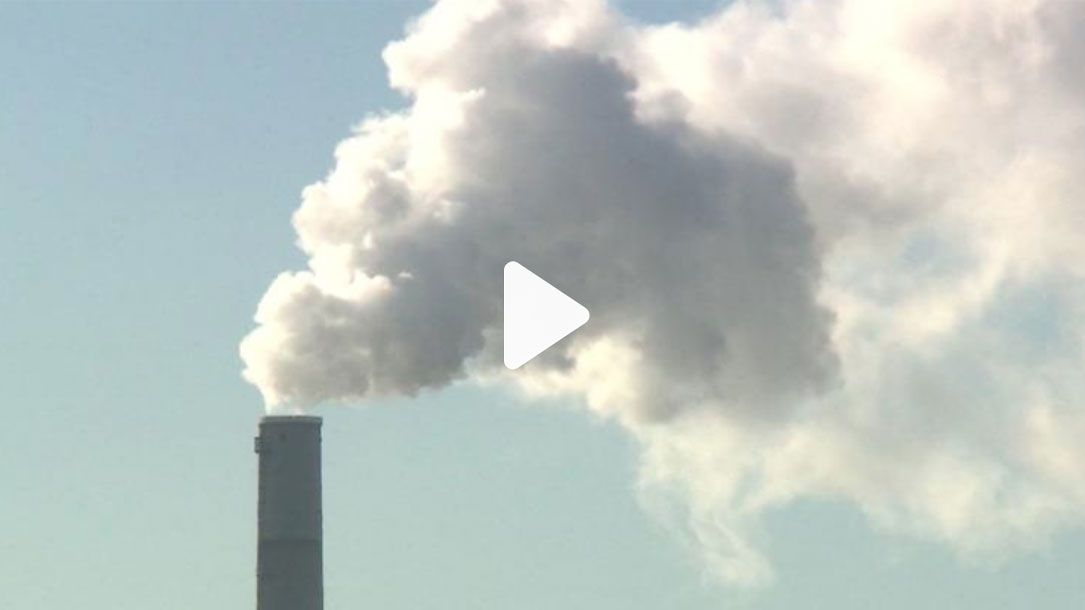
Planet has only until 2030 to stem catastrophic climate change, experts warn
“Governments around the world must take “rapid, far-reaching and unprecedented changes in all aspects of society” to avoid disastrous levels of global warming, says a stark new report from the global scientific authority on climate change.
The report issued Monday by the UN Intergovernmental Panel on Climate Change (IPCC), says the planet will reach the crucial threshold of 1.5 degrees Celsius (2.7 degrees Fahrenheit) above pre-industrial levels by as early as 2030, precipitating the risk of extreme drought, wildfires, floods and food shortages for hundreds of millions of people…”
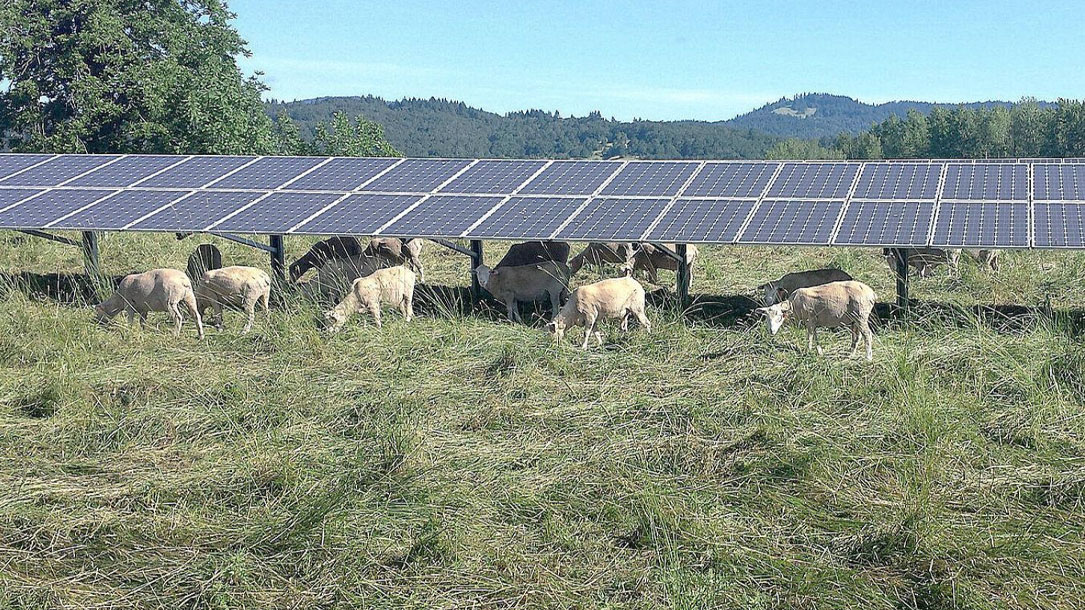
Study shows crops, forage may benefit from solar panel shade
An accidental discovery at Oregon State University may reveal how solar panels can help grow healthier crops on dryland farms.
Not only can solar power lower energy bills and increase efficiency, but the shade afforded by photovoltaic panels might also boost agricultural production on non-irrigated farmland, retaining more moisture for crops and livestock forage…
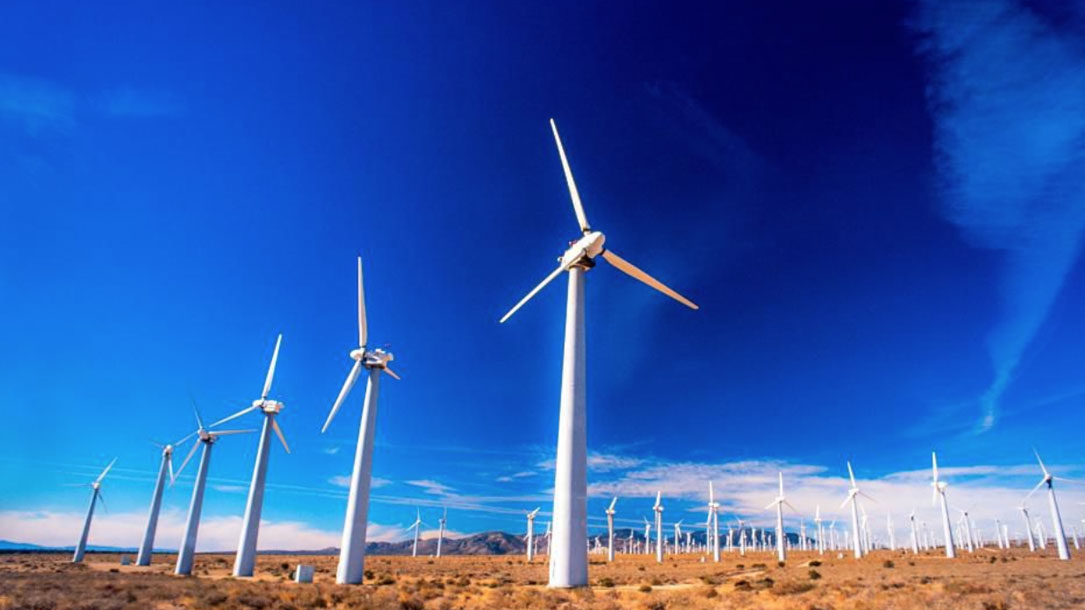
No, wind farms are not causing global warming
If you hear pushback about wind energy, whether it’s because of the impact on birds and bats, land fragmentation, or light and sound, it’s helpful to frame your response based upon facts and in the context of what havoc climate change will wreak if we don’t slow it down.
Research is documenting we are headed towards massive species die-off, including birds and bats, if we continue on our current track to an increase of three degrees Celsius.
One of the strategic actions your land trust can take is to help your community understand the need for renewables and how they are a necessary part of the conservation solution. A good place to start? Dispel this misconception…
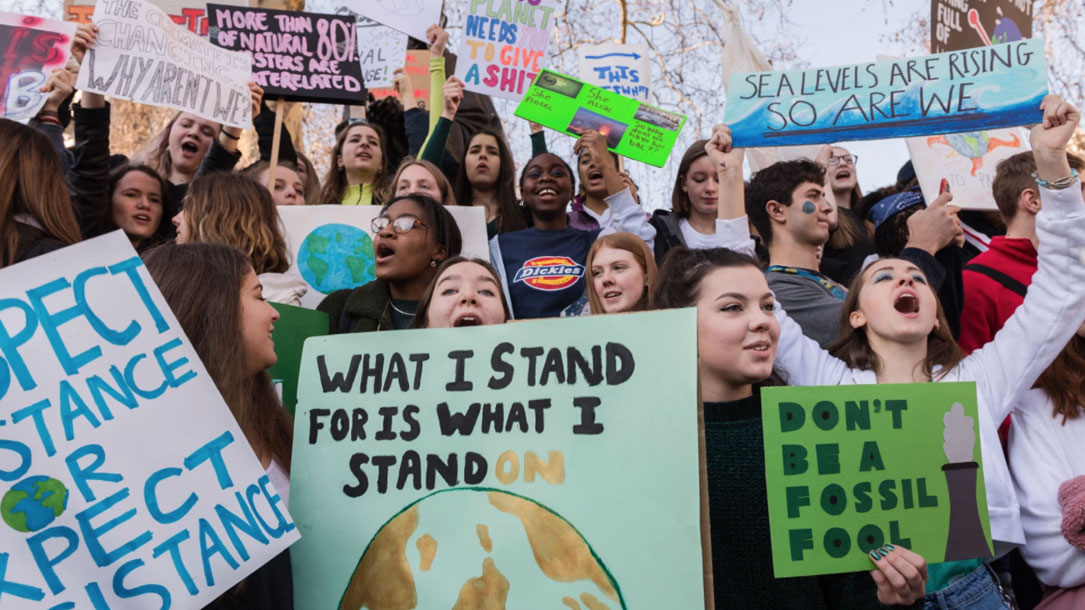
Where Americans (mostly) agree on climate change policies
“Americans are politically divided over climate change, but there’s broader consensus around some of the solutions.
New data from the Yale Program on Climate Change Communication — in partnership with Utah State University and the University of California, Santa Barbara — show how Americans across the country view climate and energy policies.
There is widespread support for renewable energy…”
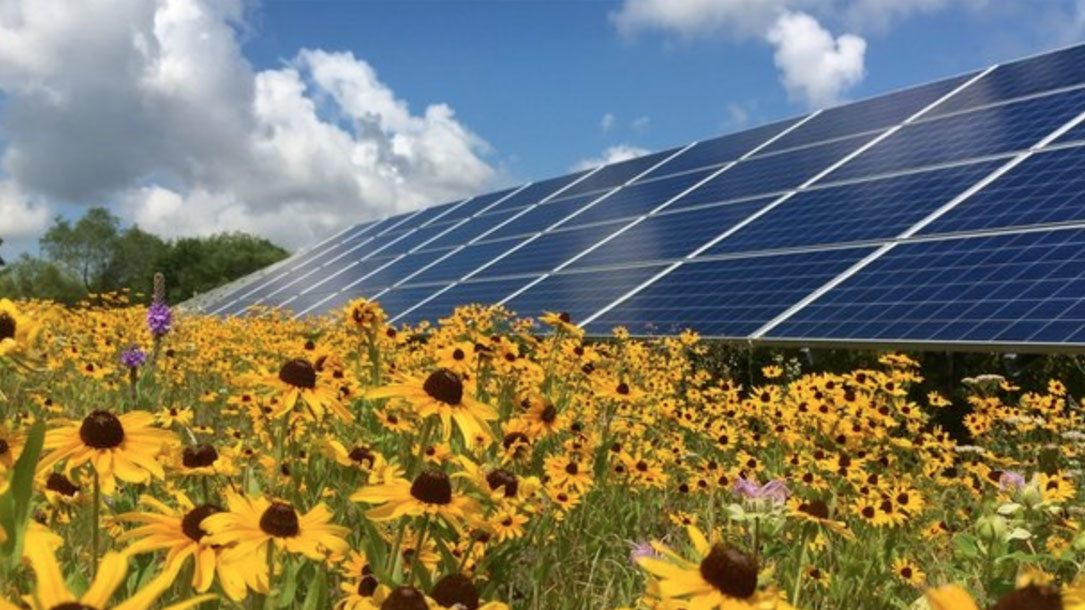
Pollinators, solar, and your land trust
There’s a major opportunity to help slow down climate change and ramp up pollinator gardens with community and large-scale solar.
The timing is critical given new research is documenting that climate change is decimating pollinators of all kinds. As one article notes, “it’s a great year for monarch butterflies [but] climate change means that won’t last.”
Limiting global warming to 1.5°C (and thus saving countless species) would require “rapid and far-reaching” transitions in land, energy, industry, buildings, transport, and cities. Global net human-caused emissions of carbon dioxide (CO2) would need to fall by about 45 percent from 2010 levels by 2030, reaching ‘net zero’ around 2050. This means that any remaining emissions would need to be balanced by removing CO2 from the air.
The good news is that solar pollinator farms can make a big difference. That’s also good news to landowners and farmers who could benefit from the regular income that solar payments provide. For many, that might make the difference between selling out or staying on the land…
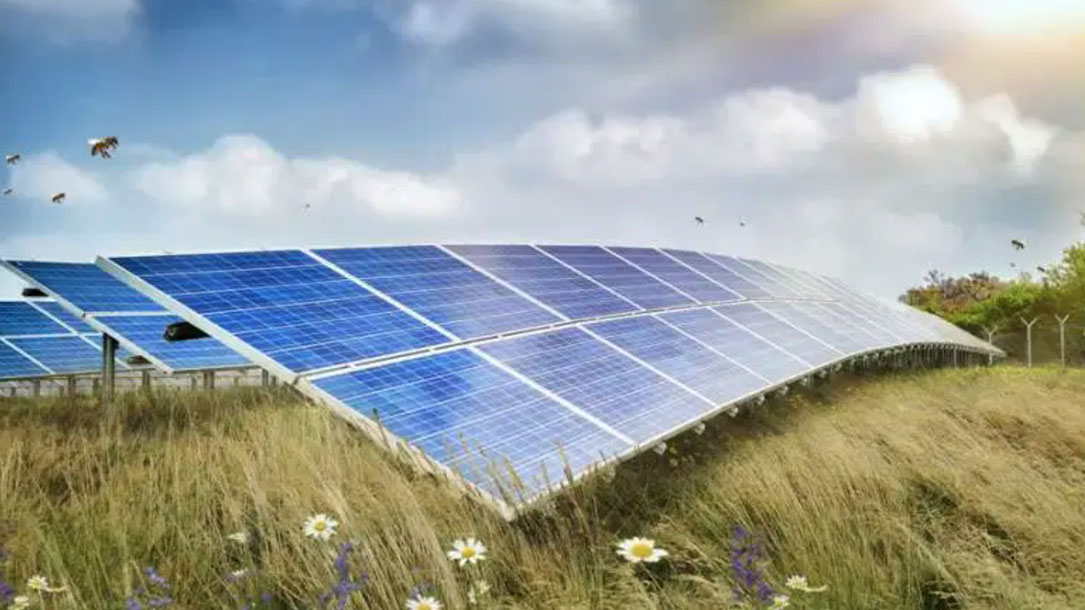
Research: Pollinator habitats could be saved by solar power plants
Researchers at the U.S Department of Energy’s (DOE) Argonne National Laboratory are studying solar energy facilities with pollinator habitats on site. Through this effort they hope to rehabilitate declining pollinator populations that play an important role in the agricultural industries. The loss of such species could result in devastating crop production, costs, and nutrition on a global scale.
Currently, pollinators are responsible for pollinating nearly 75% of all crops used for food. However, because of the increase in man-made environmental stressors, their population continues to steeply decline.
The research team has been working on examining the potential benefits of establishing species’ habitat at utility-scale solar energy facilities to resolve the problem.
They have found that the area around solar panels could provide an ideal location for the plants that attract pollinators…
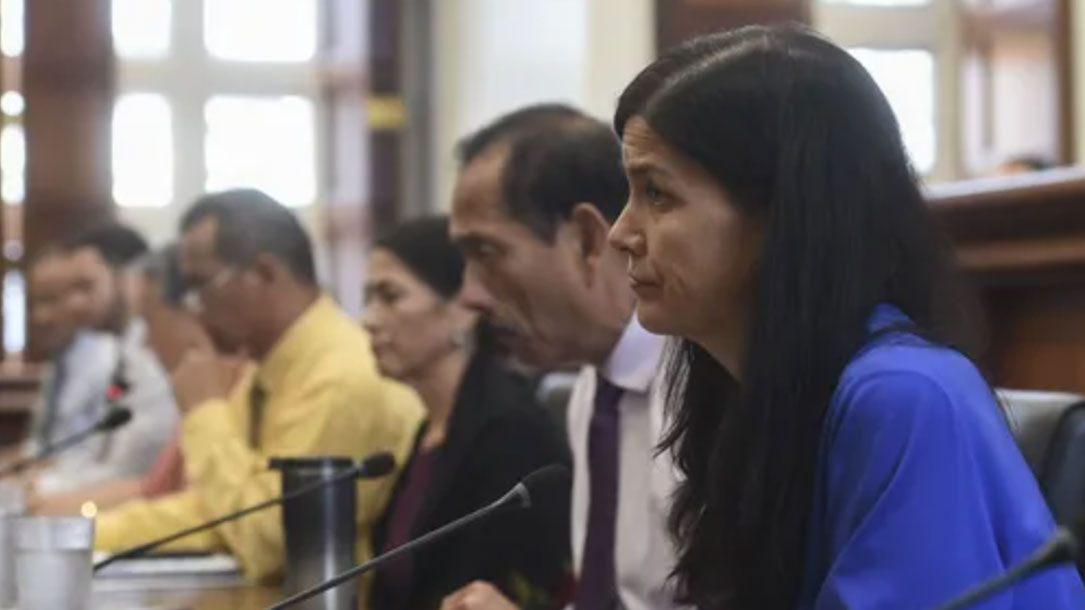
Politics: What’s Allowed?
“Can land trusts do advocacy?
Yes! Land trusts can advocate for policies that support conservation — and it’s one of our most important jobs. Think about it. Our elected representatives make decisions about conservation that can open huge opportunities — or shut them down. So, land trusts need to be just as good at building relationships with our elected officials as we are at building relationships with major donors and landowners.
People in land trusts often question whether it’s legal to get involved in politics. The answer is YES, you can advocate on issues, legislation, and ballot measures. But you do need to follow some relatively simple rules. Here’s an overview of the law…”

Neighborhood Sun to host free event at Eastern Shore Conservation Center
Increasingly, land trusts are finding ways to help their community connect the dots on why solar is related to their conservation work and how to sign up for local, often community, solar.
This past summer, the Eastern Shore Land Conservancy hosted a program with a local solar provider at their office. You can see their announcement here. Perhaps your local land trust could do this as well.

Five reasons farmers love wind & solar
If we are going to reduce coal, oil, and natural gas — to save thousands of species from extinction and avoid significant agricultural damage and loss due to extreme weather – plus find ways to make family farms viable in a changing climate, we are going to have to rethink how solar and wind are compatible with our conservation and community goals.
Check out five reasons why farmers often embrace wind and solar. Land trusts can help communities understand that the alternative to gearing towards renewables is often going out of business, selling for development, and family economic stress.



